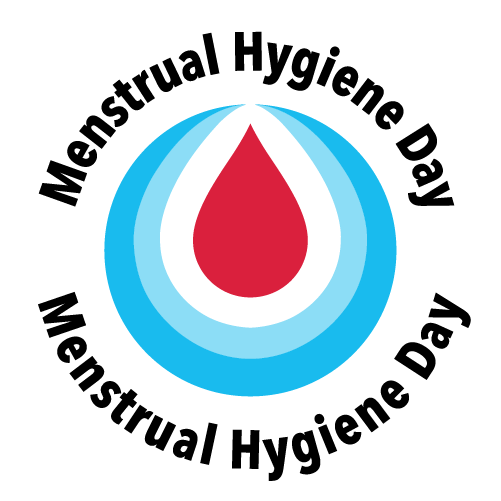Menstrual Hygiene Day
Menstrual Hygiene Day
Background
Menstrual Hygiene Day was initiated by the German non-profit WASH United in 2013.
The day is observed on the 28th day of the fifth month of the year because menstrual cycles average 28 days in length and people menstruate an average of five days each month.
Menstrual hygiene
Each of us has a right to bodily autonomy. The ability to care for your body while menstruating is an essential part of this fundamental freedom. Yet an estimated 500 million people lack access to menstrual products and adequate facilities for menstrual health.
Poor menstrual health and hygiene undercuts fundamental rights – including the right to work and go to school – for women, girls and people who menstruate. It worsens social and economic inequalities. Insufficient resources to manage menstruation, as well as patterns of exclusion and shame, undermine human dignity. Gender inequality, extreme poverty, humanitarian crises and harmful traditions can amplify deprivation and stigma.
Theme for 2024
 With that in mind, the theme for Menstrual Hygiene Day this year is “Together for a period friendly World.”
With that in mind, the theme for Menstrual Hygiene Day this year is “Together for a period friendly World.”
Lack of education, ongoing taboos, and stigma cause poor menstrual hygiene. A lack of access to clean menstrual products and bad sanitation also contribute. These problems harm the education, health, and social status of women and girls worldwide.
As a result, millions of women and girls face obstacles to their full potential. Menstrual Hygiene Day (MH Day) is a global campaign. It unites nonprofits, governments, individuals, businesses, and the media. The goal is to promote good menstrual health and hygiene (MHH).
MH Day has two key aims. First, it breaks the taboo around menstrual health and hygiene. It raises awareness and shifts negative social norms around MHH. Second, it urges leaders to prioritise and act on MHH at global, national and local levels. Here are five things you need to know about why in 2024, this day is more important than ever.
- It’s a global problem : 500 million women and girls worldwide don’t have what they need to manage their periods safely, hygienically and without shame. This is due to a combination of lack of access to period products, lack of education about menstruation and inadequate water and sanitation infrastructure. The persisting taboos and stigma around menstruation are the root cause that underpins all these issues. If we can’t talk openly about periods, we can’t effectively address these challenges.
- Period stigma has far-reaching effects, for all of us : Menstruation-related challenges have a severe negative impact on the health, educational and income-earning opportunities, and the overall social status of women and girls. In turn, this affects families, communities and entire countries. Management consulting firm Kearney estimates the economic damage resulting from women and girls around the world missing out on education and job opportunities amounts to hundreds of billions of dollars each year.
- MH Day partners take a multifaceted approach : The MH Day movement consists of over 1000 partners, all tackling different aspects of the problem. Focus areas include:
- providing access to good quality menstrual products,
- educating school children about menstruation,
- campaigns to change negative social norms,
- policy advocacy, including the removal or reduction of taxes on period products,
- ensuring that marginalised groups, such as people with disabilities and refugees, have what they need for good MHH, and much more.
- Change is happening. Collectively, we’re making significant progress. The collective reach of the Menstrual Hygiene Day campaign has grown from reaching just over 20 million people in 2014 to 705 million people in 2023. And in the same period, media coverage of MH Day has increased 200-fold.
- More investment is needed. Urgently. The current funding available is focussing mostly on the provision of menstrual products. However, without a significant increase in funding, the movement will fall short of its goal. As a result, millions of women and girls worldwide will be kept from achieving their full potential.
Last Modified : 5/29/2024
This topic explains different menstrual disorders ...
Menstruation is the periodic discharge of blood an...
This topic contains the information related to Men...
Briefs about the functions of a obstetrician-gynec...
